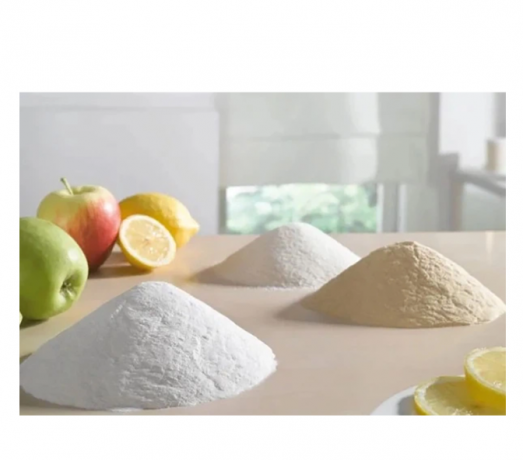please click here:
https://www.newnaturebio.com/food-thickeners.html
Introduction to Pectin
Pectin is a natural carbohydrate found in the cell walls of plants, especially in citrus fruits and apples. It functions as a gelling agent, thickener, stabilizer, and soluble fiber. While most people recognize pectin as the ingredient that helps jam or jelly set, its applications go far beyond the kitchen. From pharmaceuticals to cosmetics to functional nutrition, pectin has become a multi-industry ingredient.
Understanding pectin's origins, types, and properties can help consumers, food manufacturers, and researchers better appreciate its versatility. This article explores the science, uses, health implications, and market relevance of pectin, offering comparisons with other commonly used ingredients to highlight its unique advantages.
The Science Behind Pectin
Pectin is a complex polysaccharide primarily composed of galacturonic acid units. These molecules are linked together in chains that create a structure capable of binding water and forming gels. The level of esterification—meaning how many galacturonic acid groups are methyl-esterified—determines the type of pectin.
-
High Methoxyl Pectin (HMP): Requires sugar and acid to gel, commonly used in jams and jellies.
-
Low Methoxyl Pectin (LMP): Gels in the presence of calcium, making it suitable for low-sugar or sugar-free products.
-
Modified Pectins: Designed for specific health or industrial purposes, such as better solubility or targeted bioactivity.
Sources of Pectin
Pectin is naturally present in many fruits and vegetables, but commercial production relies on high-yield sources:
-
Citrus fruits: Orange and lemon peels are the leading sources, accounting for the majority of industrial pectin.
-
Apples: Apple pomace, a by-product of juice processing, is another important source.
-
Other plants: Sugar beet pulp and sunflower heads are emerging sources, though less common commercially.
These sources are often agricultural by-products, making pectin extraction a sustainable practice that reduces waste.
Extraction and Processing
Pectin extraction involves heating plant material in acidic water, breaking down the cell walls and releasing the soluble pectin. The extract is then filtered, concentrated, and precipitated using alcohol before being dried into a powder. Processing conditions influence pectin's gel strength, degree of esterification, and final application suitability.
Functional Properties of Pectin
Pectin's unique molecular structure provides several functional benefits:
-
Gelling: Essential for jams, marmalades, and fruit preserves.
-
Thickening: Adds body to sauces, yogurts, and beverages.
-
Stabilizing: Prevents separation in fruit juices and dairy drinks.
-
Fat replacement: Mimics fat's texture in reduced-calorie foods.
-
Fiber enrichment: Serves as a source of soluble dietary fiber.
Pectin in the Food Industry
The food sector remains the largest user of pectin. Common applications include:
-
Confectionery: Gummies, fruit snacks, and jellies rely on pectin for their chewy texture.
-
Dairy products: Yogurt drinks and flavored milk use pectin for stability and mouthfeel.
-
Baked goods: Pectin improves moisture retention and texture.
-
Plant-based foods: In vegan cheese and desserts, pectin helps replicate creamy textures.
Pectin vs. Other Hydrocolloids
To better understand pectin's role, it helps to compare it with other common hydrocolloids:
| Feature | Pectin | Gelatin | Agar-Agar | Carrageenan | Xanthan Gum |
|---|---|---|---|---|---|
| Source | Plant (fruits, citrus) | Animal (collagen) | Seaweed | Seaweed | Bacterial fermentation |
| Vegan-friendly | Yes | No | Yes | Yes | Yes |
| Gelling requirement | Sugar/acid or calcium | Cooling | Cooling | Potassium ions | No gel, only thickening |
| Texture produced | Soft, elastic | Firm, bouncy | Brittle | Smooth, creamy | Viscous, slimy |
| Key applications | Jams, drinks, gummies | Marshmallows, candies | Asian desserts, jellies | Dairy, meat alternatives | Sauces, dressings |
This comparison shows pectin's advantages: it is plant-based, versatile, and widely accepted in clean-label and vegan-friendly formulations.
Health Benefits of Pectin
Beyond texture and gelling, pectin offers several health benefits:
-
Digestive health: As a soluble fiber, pectin helps regulate bowel movements and promotes gut health.
-
Cholesterol reduction: Studies show pectin can help lower LDL cholesterol by binding bile acids.
-
Blood sugar control: Pectin slows glucose absorption, which may support better glycemic response.
-
Detoxification: Modified citrus pectin has been studied for its potential to bind heavy metals.
-
Prebiotic effects: Pectin supports beneficial gut bacteria, contributing to a healthier microbiome.
Pectin in Pharmaceuticals and Healthcare
Pharmaceutical industries use pectin for:
-
Drug delivery: Pectin-based capsules release drugs in the intestine rather than the stomach.
-
Wound healing: Pectin dressings create a moist healing environment.
-
Cough syrups: Pectin acts as a soothing agent for throat irritation.
Modified citrus pectin is being researched for cancer support therapy due to its potential to inhibit metastasis.
Pectin in Cosmetics and Personal Care
Pectin's natural origin and safety make it valuable in beauty formulations. It appears in:
-
Lotions and creams: As a stabilizer and thickener.
-
Face masks: For film-forming and hydration.
-
Shampoos and conditioners: To enhance texture and improve product stability.
Sustainability Aspects of Pectin
Pectin production uses by-products like citrus peels and apple pomace, reducing agricultural waste. Compared to gelatin, which requires animal-derived collagen, pectin aligns better with vegan and sustainable product trends. Its biodegradability also supports eco-friendly formulations.
Market Trends and Future Outlook
The demand for pectin continues to grow as consumers seek natural, plant-based, and clean-label ingredients. Key trends include:
-
Low-sugar food formulations: Driving the use of low methoxyl pectins.
-
Functional foods and supplements: Growing demand for modified citrus pectin.
-
Plant-based and vegan diets: Increased adoption of pectin as a gelling agent.
-
Sustainability: Encouraging innovation in pectin sourcing and processing.
Challenges in Pectin Applications
Despite its benefits, pectin faces some challenges:
-
Cost: More expensive than some synthetic thickeners.
-
Heat sensitivity: Over-processing can weaken its gelling properties.
-
Limited gelling conditions: Requires specific pH, sugar, or calcium levels.
Conclusion
Pectin is more than just a jam-making ingredient—it is a multifunctional fiber with applications in food, pharmaceuticals, cosmetics, and health. Its plant-based origin, clean-label appeal, and potential health benefits position it as a key ingredient for the future. As research advances, we can expect pectin to expand into even more industries, making it one of the most versatile biopolymers available today.
Frequently Asked Questions
1. Is pectin safe to consume daily?
Yes, pectin is safe for daily consumption and is considered a natural soluble fiber that can benefit digestion and cholesterol management.
2. Can pectin be used in vegan cooking?
Absolutely. Pectin is plant-based and often used as a vegan alternative to gelatin.
3. Does pectin have calories?
Pectin is a carbohydrate, but as a fiber, it contributes minimal usable calories to the body.
4. What foods naturally contain pectin?
Apples, citrus fruits, carrots, plums, and cherries are naturally rich in pectin.
5. How is modified citrus pectin different from regular pectin?
Modified citrus pectin has smaller, more soluble molecules, making it easier to absorb and potentially more effective in certain health applications.
Summary
Pectin is a plant-based fiber widely used as a gelling agent, stabilizer, and functional ingredient in food, health, and cosmetics. Beyond jams and jellies, it supports digestion, heart health, and sustainability. Its clean-label appeal positions it as a future-ready natural ingredient.






